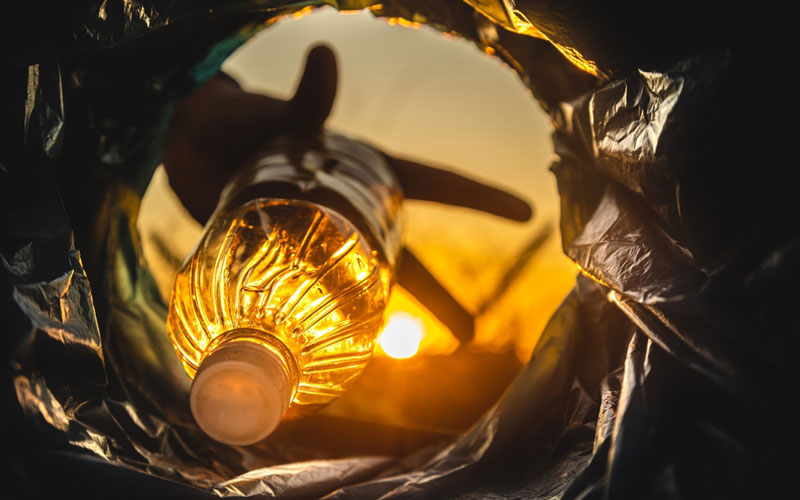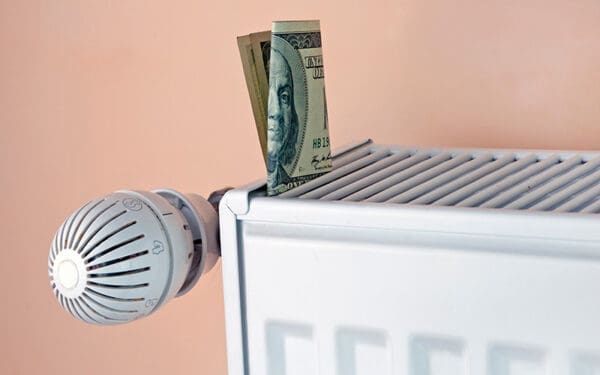
Across New England, bottle bills are helping improve recycling and tackle litter pollution. It's New Hampshire's turn. Photo: Shutterstock.
As a New Hampshire native, I enjoy kayaking on the Great Bay. But while watching the beautiful birds, winding marshes, and breathtaking blossoms, I find it hard to ignore the single-use plastic – empty bottles, food wrappers, and other litter – scattered throughout the estuary. In recent years, it’s only gotten worse.
New England has led the way in tackling plastic litter for decades. Thanks to bottle bills, many New England states have increased recycling rates and now rank among the top states in the U.S. However, my home state isn’t one of them. We don’t even have a bottle deposit program. But we can change that. A bottle bill would help New Hampshire clean up its plastic litter – and preserve the beauty of our communities, waterways, and parks.
How Bottle Bills Work
A bottle bill places a small 5 to 10-cent deposit on a single-use plastic bottle. Consumers can get that money back when they return the empty bottle to a retailer or redemption center. Retailers and redemption centers help these bottles get properly recycled, decreasing litter in the environment.
That deposit can also apply to beverages packaged in glass bottles and aluminum cans. Basically, a bottle bill can cover almost any drink you see at your local corner store.
The Problem with Single-Use Plastic
Though U.S. beverage companies produce over 100 billion bottles annually, they only recycle a small percentage. Eighty-six percent of all plastic ends up incinerated or buried, sitting in the ground for over one thousand years.
Bottle Bills in New England
In 1983, our neighbors in Massachusetts passed a bottle bill that set a 5-cent deposit on many containers. Other New England states have followed suit. I admire how Maine, for instance, has continued to work to make its bottle bill stellar by creating incentives for retailers, improving collection systems, and investing in reuse and refill centers.
Here in New Hampshire, legislators have considered implementing a bottle bill since 2003, but the issue remains on the back burner. With litter pollution at an all-time high, it’s time for our state to take serious action to preserve its natural beauty, landscapes, and waterways. Here are three reasons to pass a New Hampshire Bottle Bill:
1. It Holds Producers Accountable
As Big Beverage companies continue to reap profits, New Hampshire’s cities and towns are left to foot the bill to manage their waste. That’s simply unacceptable. Bottle bills hold producers accountable for the lifecycle of their products by requiring companies to pay for the collection and recycling of their containers.
These laws also encourage producers to make recycling easier. Companies may also opt to design much more sustainable packaging or switch to a refill system. These steps can help decrease litter and contribute to a healthier environment.
2. It Improves Recycling Rates
Bottle bills incentivize consumers to return their empty bottles for a refund. “And this incentive is proven to work,” says Heidi Trimarco, staff attorney at CLF. Recycling rates for beverage containers in states with bottle bills are about twice as high as those without. Maine, for instance, recycles about 72% of all beverage containers. That’s significantly higher than the 30% national average. New Hampshire’s 26% recycling rate falls below the national average. A New Hampshire bottle bill would help our state ensure that tons of valuable recyclable materials become new containers, instead of ending up as waste in landfills or litter in our communities.
3. It Reduces Litter in Our Communities, Parks, and Waterways
Plastic bottles that end up as litter don’t just disappear; they break down into tiny pieces known as microplastics. These microplastics can be carried by wind and water into our rivers, lakes, and oceans, creating a serious threat to wildlife and ecosystems. A survey by New Hampshire’s Department of Environmental Services found nearly 7.5 million pieces of microplastics on just eight of our beaches. That’s an alarming amount of plastic waste polluting our state’s precious water resources.
By adopting a bottle bill, New Hampshire can drastically reduce this type of pollution. Ensuring that plastic bottles are returned and recycled prevents them from becoming microplastics, protecting our waterways and maintaining our state’s natural beauty.
A Call to Action for a New Hampshire Bottle Bill
As someone who loves spending time in nature, I’m passionate about helping keep New Hampshire’s waterways free from litter. By pushing for laws that hold producers accountable for the waste they produce – like bottle bills – we can help New Hampshire tackle our problem with plastic pollution. You can help! Tell your elected officials you want them to advocate for a Bottle Bill in New Hampshire. Together, we can create a cleaner and healthier New Hampshire for all.



